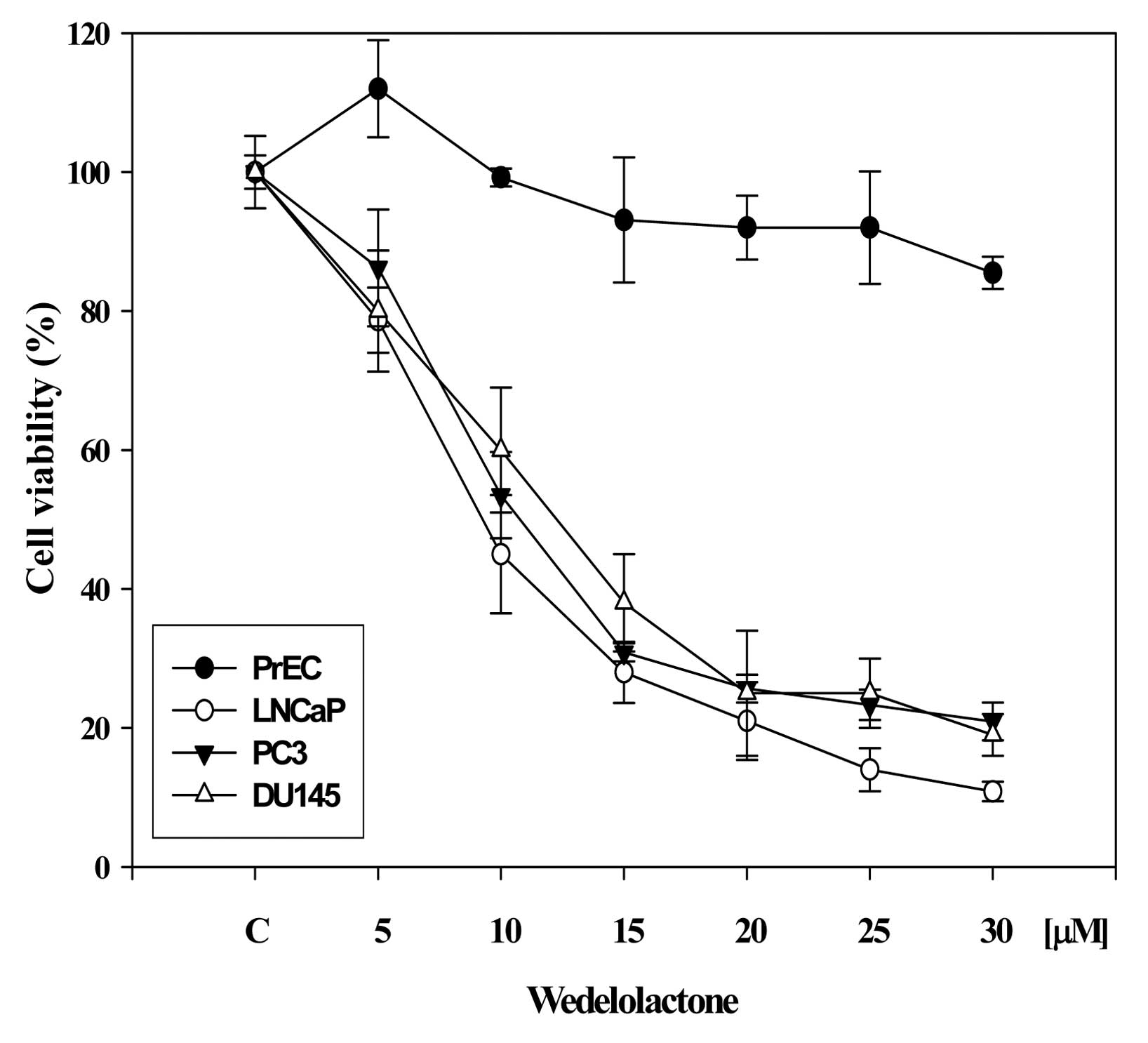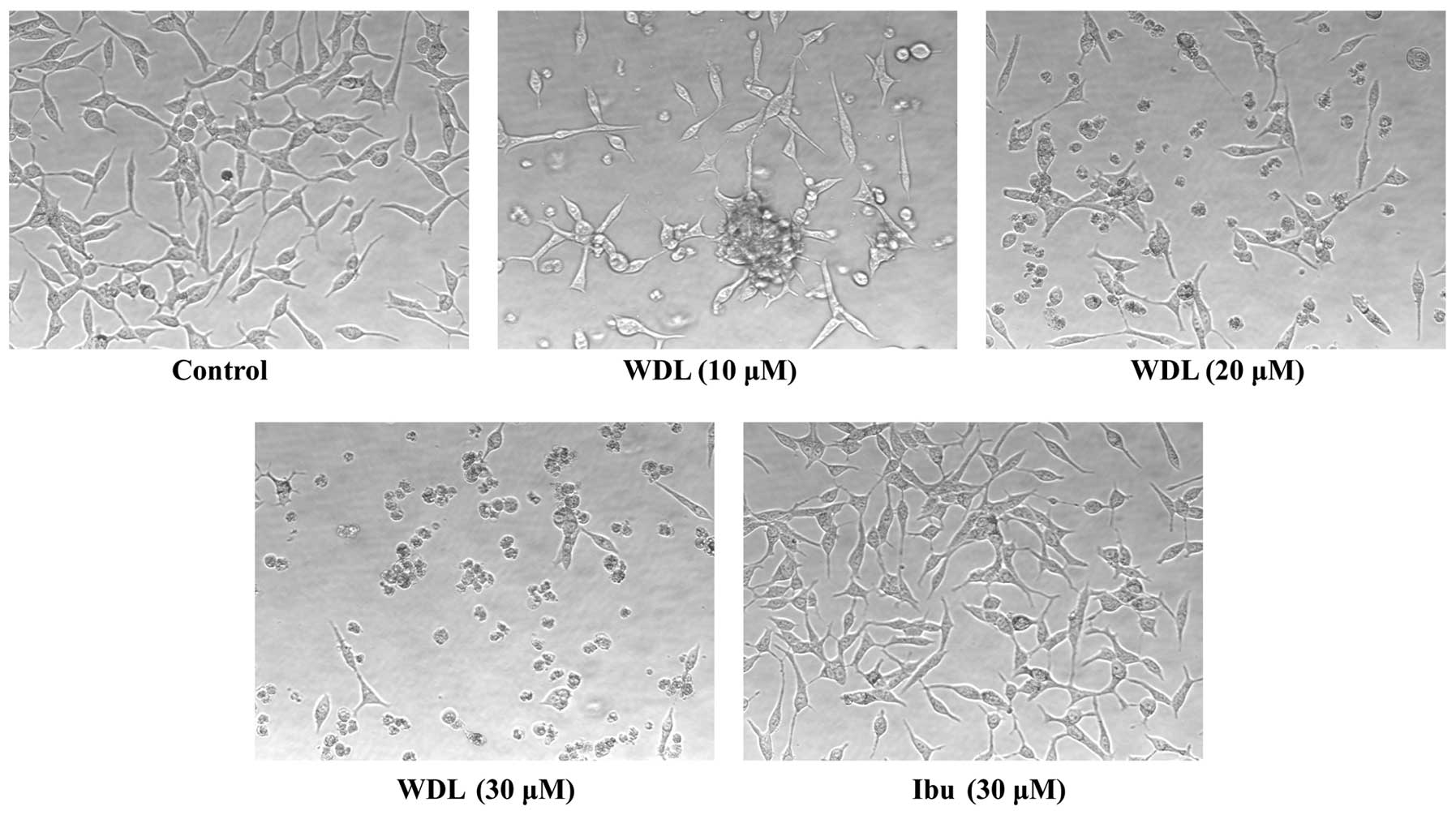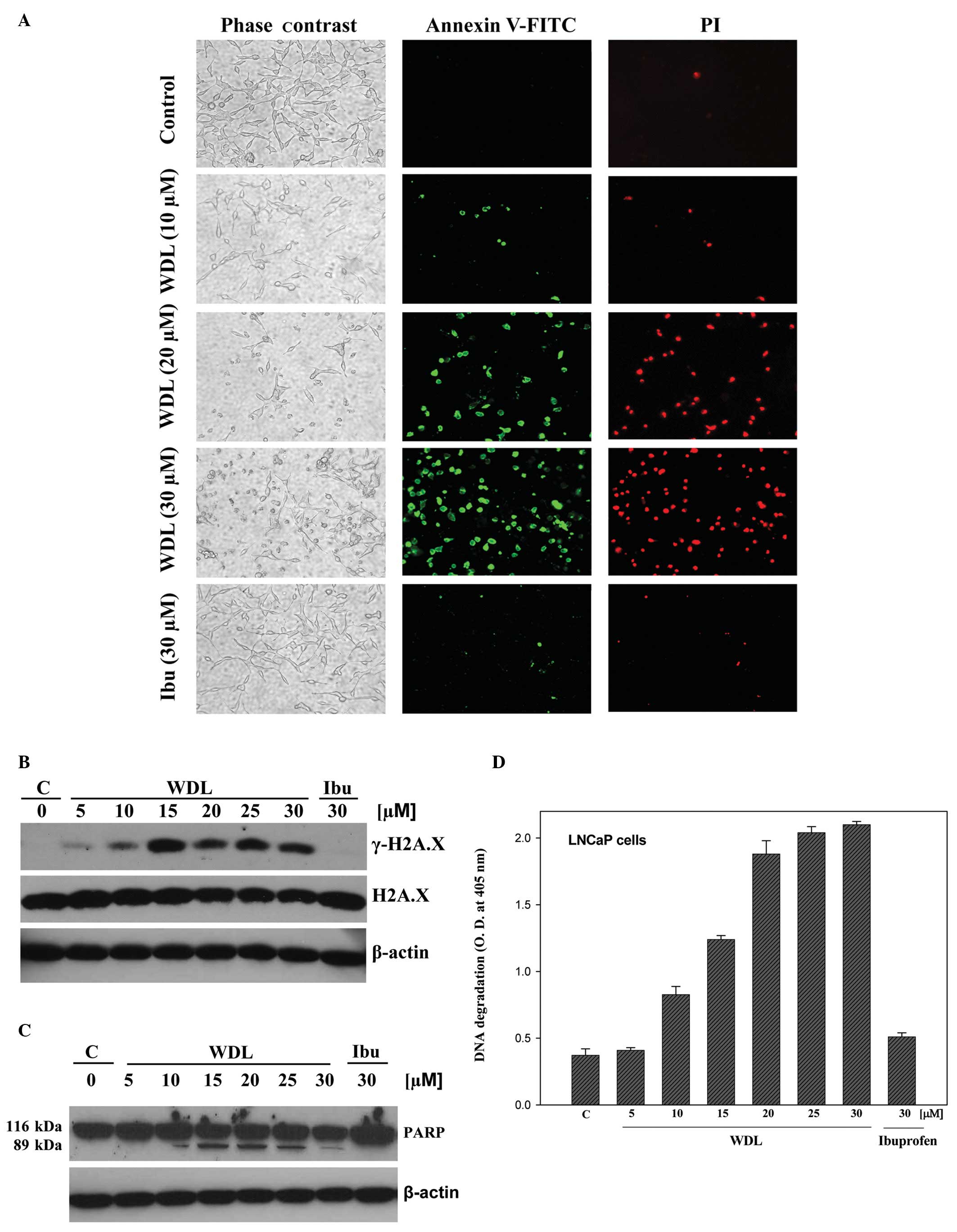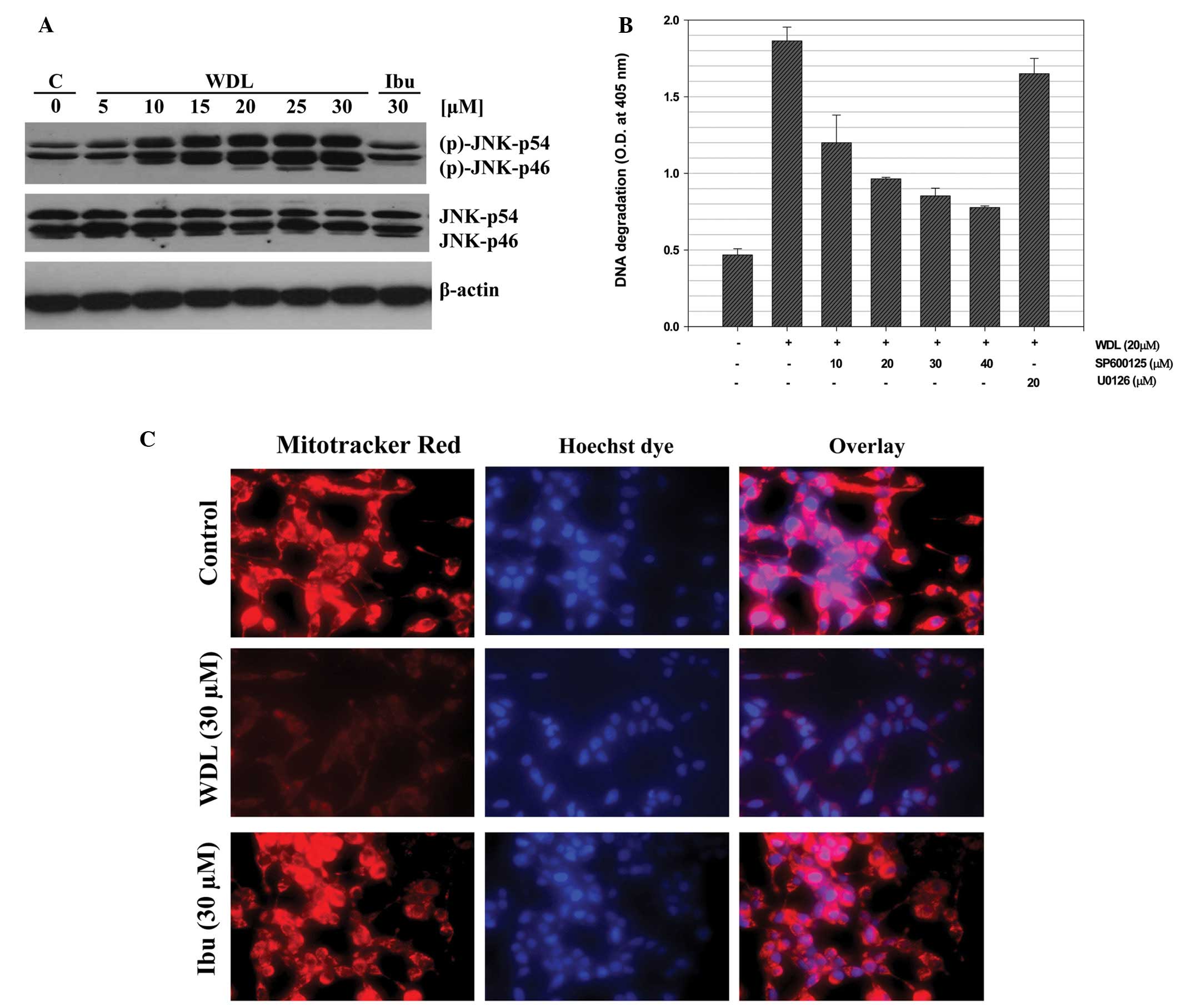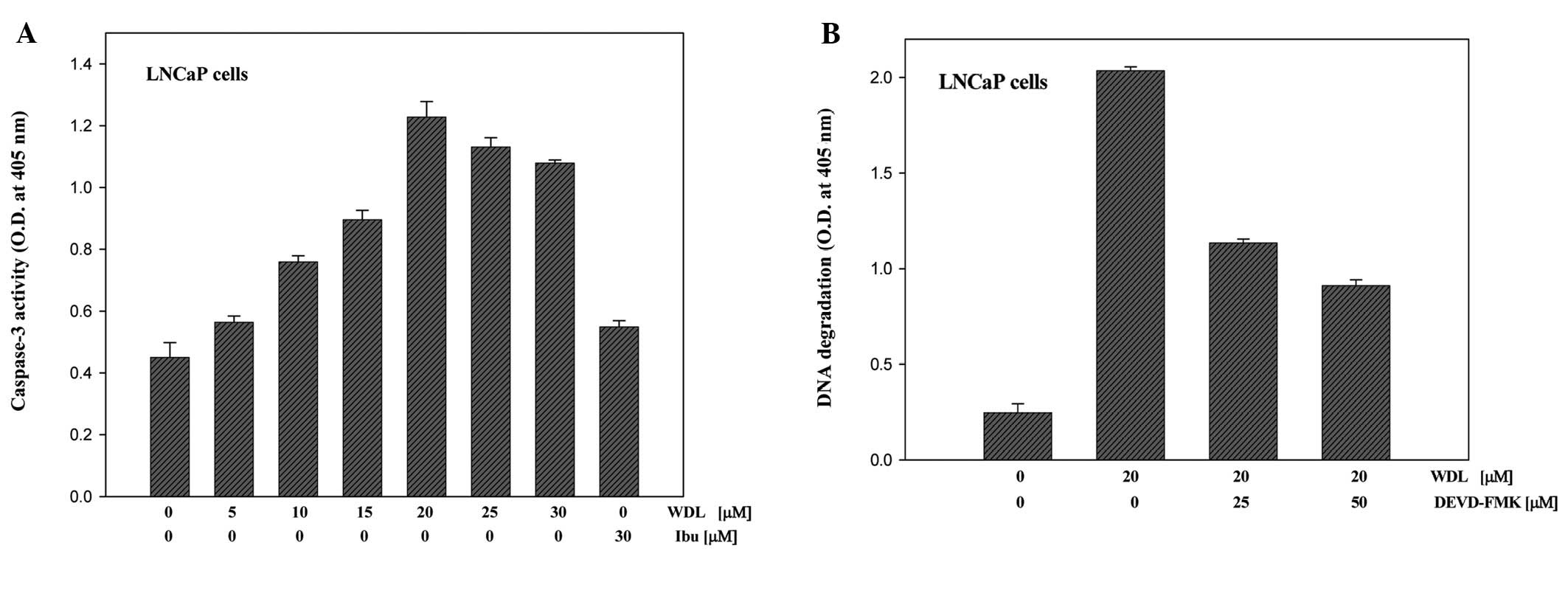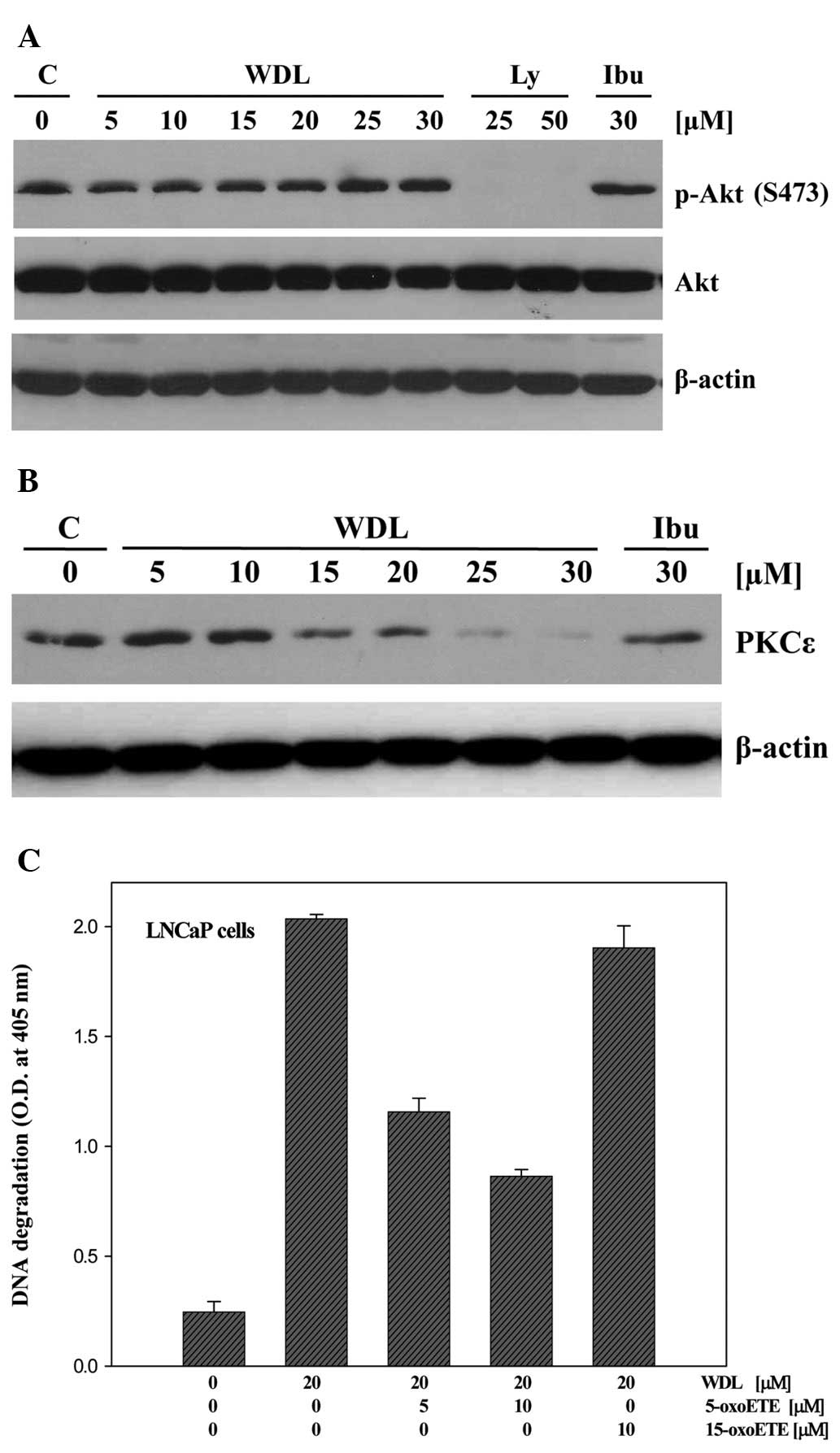|
1.
|
T GovindachariK NagarajanB
PaiWedelolactone from Eclipta albaJ Sci Indust
Res15B6646651956
|
|
2.
|
H WagnerB GeyerY KisoH HikinoGS
RaoCoumestans as the main active principles of the liver drugs
Eclipta alba and Wedelia calendulaceaPlanta
Med52370374198610.1055/s-2007-969188
|
|
3.
|
B SinghAK SaxenaBK ChandanSG AgarwalKK
AnandIn vivo hepatoprotective activity of active fraction from
ethanolic extract of Eclipta alba leavesIndian J Physiol
Pharmacol45435441200111883149
|
|
4.
|
MB PatelVM KadakiaSH MishraSimultaneous
estimation of andrographolide and wedelolactone in herbal
formulationsIndian J Pharma
Sci70689693200810.4103/0250-474X.4542121394279
|
|
5.
|
RK RoyM ThakurVK DixitHair growth
promoting activity of Eclipta alba in male albino ratsArch
Dermatol Res300357364200810.1007/s00403-008-0860-318478241
|
|
6.
|
WB MorsMC do NascimentoJP ParenteMH da
SilvaPA MeloG Suarez-KurtzNeutralization of lethal and myotoxic
activities of South American rattlesnake venom by extracts and
constituents of the plant Eclipta prostrata
(asteraceae)Toxicon2710031009198910.1016/0041-0101(89)90151-72799833
|
|
7.
|
PA MeloMC NascimentoWB MorsG
Suarez-KurtzInhibition of the myotoxic and hemorrhagic activities
of crotalid venoms by Eclipta prostrata (asteraceae)
extracts and
constituentsToxicon32595603199410.1016/0041-0101(94)90207-08079371
|
|
8.
|
PA MeloCL OwnbyAbility of wedelolactone,
heparin, and para-bromophenacyl bromide to antagonize the myotoxic
effects of two crotaline venoms and their PLA2
myotoxinsToxicon37199215199910.1016/S0041-0101(98)00183-49920492
|
|
9.
|
AM SoaresAH JanuarioMV LourencoAM
PereiraPS PereiraNeutralizing effects of Brazilian plants against
snake venomsDrugs
Fut2911051109200410.1358/dof.2004.029.11.851973
|
|
10.
|
M KoboriZ YangD GongV HeissmeyerH ZhuYK
JungM AngelicaM GakidisA RaoT SekineF IkegamiC YuanJ
YuanWedelolactone suppresses LPS-induced caspase-11 expression by
directly inhibiting the IKK complexCell Death
Differ11123130200410.1038/sj.cdd.440132514526390
|
|
11.
|
SD SyedM DeepakS YogishaAP ChandrashekarKA
MuddarachappaP D’SouzaA AgarwalBV VenkataramanTrypsin inhibitory
effect of wedelolactone and demethylwedelolactonePhytother
Res17420421200310.1002/ptr.115312722155
|
|
12.
|
BP SagarR PanwarA GoswamiK KadianK TyagiM
ChughS DalalR ZafarPharmacokinetic interactions of antihepatotoxic
wedelolactone with paracetamol in wistar albino ratsPharmaceutical
Biol44554561200610.1080/13880200600885242
|
|
13.
|
LC DiogoRS FernandesS MarcussiDL MenaldoPG
RobertoPV MatranguloPS PereiraSC FrancaS GiuliattiAM SoaresMV
LourencoInhibition of snake venoms and phospholipases A2
by extracts from native and genetically modified Eclipta
alba: isolation of active coumestansBasic Clin Pharmacol
Toxicol104293299200919320636
|
|
14.
|
P PithayanukulB LapettR BavovadaN
PakmaneeR SuttisriInhibition of proteolytic and hemorrhagic
activities by ethyl acetate extract of Eclipta prostrata
against Malayan pit viper venomPharmaceutical
Biol45282288200710.1080/13880200701214805
|
|
15.
|
FM LinLR ChenEH LinFC KeHY ChenMJ TsaiPW
HsiaoCompounds from Wedelia chinensis synergistically
suppress androgen activity and growth in prostate cancer
cellsCarcinogenesis2825212529200717942463
|
|
16.
|
N Kaushik-BasuA Bopda-WaffoTT TaleleA
BasuPR CostaAJ da SilvaSG SarafianosF NoelIdentification and
characterization of coumestans as novel HCV NS5B polymerase
inhibitorsNucleic Acids
Res3614821496200810.1093/nar/gkm117818203743
|
|
17.
|
H WagnerB FesslerIn vitro 5-lipoxygenase
inhibition by Eclipta alba extracts and the coumestan
derivative wedelolactonePlanta Med523743771986(In German).
|
|
18.
|
O WerzInhibition of 5-lipoxygenase product
synthesis by natural compounds of plant originPlanta
Med7313311357200710.1055/s-2007-99024217939102
|
|
19.
|
S GuptaM SrivastavaN AhmadK SakamotoDG
BostwickH MukhtarLipoxygenase-5 is overexpressed in prostate
adenocarcinomaCancer91737743200110.1002/1097-0142(20010215)91:4%3C737::AID-CNCR1059%3E3.0.CO;2-F11241241
|
|
20.
|
J GhoshCE MyersInhibition of arachidonate
5-lipoxygenase triggers massive apoptosis in human prostate cancer
cellsProc Natl Acad Sci
USA951318213187199810.1073/pnas.95.22.13182
|
|
21.
|
J GhoshCE MyersCentral role of
arachidonate 5-lipoxygenase in the regulation of cell growth and
apoptosis in human prostate cancer cellsAdv Exp Med
Biol469577582199910.1007/978-1-4615-4793-8_8410667385
|
|
22.
|
KM AndersonT SeedM VosJ MulshineJ MengW
AlrefaiD OuJH Harris5-lipoxygenase inhibitors reduce PC-3 cell
proliferation and initiate nonnecrotic cell
deathProstate37161173199810.1002/(SICI)1097-0045(19981101)37:3%3C161::AID-PROS5%3E3.0.CO;2-D9792133
|
|
23.
|
RM MorettiMM MontagnaniA SalaM MottaP
LimontaActivation of the orphan nuclear receptor RORalpha
counteracts the proliferative effect of fatty acids on prostate
cancer cells: crucial role of 5-lipoxygenaseInt J
Cancer1128793200410.1002/ijc.20387
|
|
24.
|
P YangP CollinT MaddenD ChanB
Sweeney-GotschD McConkeyRA NewmanInhibition of proliferation of PC3
cells by the branched-chain fatty acid, 12-methyltetradecanoic
acid, is associated with inhibition of
5-lipoxygenaseProstate55281291200310.1002/pros.1024312712407
|
|
25.
|
M MatsuyamaR YoshimuraM MitsuhashiT HaseK
TsuchidaY TakemotoY KawahitoH SanoT NakataniExpression of
lipoxygenase in human prostate cancer and growth reduction by its
inhibitorsInt J Oncol24821827200415010818
|
|
26.
|
J GhoshInhibition of arachidonate
5-lipoxygenase triggers prostate cancer cell death through rapid
activation of c-Jun N-terminal kinaseBiochem Biophys Res
Commun307342349200310.1016/S0006-291X(03)01201-412859962
|
|
27.
|
SP CreganVL DawsonRS SlackRole of AIF in
caspase-dependent and caspase-independent cell
deathOncogene2327852796200410.1038/sj.onc.120751715077142
|
|
28.
|
DN DhanasekaranEP ReddyJNK signaling in
apoptosisOncogene2762456251200810.1038/onc.2008.30118931691
|
|
29.
|
JM KyriakisP BanerjeeE NikolakakiT DaiEA
RubieMF AhmadJ AvruchJR WoodgettThe stress-activated protein kinase
subfamily of c-Jun
kinasesNature369156160199410.1038/369156a08177321
|
|
30.
|
JM KyriakisJ AvruchSounding the alarm:
protein kinase cascades activated by stress and inflammationJ Biol
Chem2712431324316199610.1074/jbc.271.40.243138798679
|
|
31.
|
AC MaroneyJP FinnD Bozyczko-CoyneTM
O’KaneNT NeffAM TolkovskyDS ParkCY YanCM TroyLA GreeneCEP-1347 (KT
7515), an inhibitor of JNK activation, rescues sympathetic neurons
and neuronally differentiated PC12 cells from death evoked by three
distinct insultsJ Neurochem73190119121999
|
|
32.
|
S SarveswaranCE MyersJ GhoshMK591, a
leukotriene biosynthesis inhibitor, induces apoptosis in prostate
cancer cells: synergistic action with LY294002, an inhibitor of
phosphatidylinositol 3′-kinaseCancer Lett291167176201019906484
|
|
33.
|
S SarveswaranV ThamilselvanC BrodieJ
GhoshInhibition of 5-lipoxygenase triggers apoptosis in prostate
cancer cells via down-regulation of protein kinase
C-epslilonBiochim Biophys
Acta181321082117201110.1016/j.bbamcr.2011.07.01521824498
|
|
34.
|
P BenesL KnopfovaF TrckaA NemajerovaD
PinheiroK SoucekM FojtaJ SmardaInhibition of topoisomerase IIα:
novel function of wedelolactoneCancer Lett30329382011
|
|
35.
|
JS HoroszewiczSS LeongE KawinskiJP KarrH
RosenthalTM ChuEA MirandGP MurphyLNCaP model of human prostatic
carcinomaCancer Res43180918181983
|
|
36.
|
ME KaighnKS NarayanY OhnukiJF LechnerLW
JonesEstablishment and characterization of a human prostatic
carcinoma cell line (PC-3)Invest Urol1716231979447482
|
|
37.
|
KR StoneDD MickeyH WunderliGH MickeyDF
PaulsonIsolation of a human prostate carcinoma cell line (DU
145)Int J Cancer21274281197810.1002/ijc.2910210305631930
|
|
38.
|
A van BokhovenM Varella-GarciaC KorchWU
JohannesEE SmithHL MillerSK NordeenGJ MillerMS LuciaMolecular
characterization of human prostate carcinoma cell
linesProstate57205225200314518029
|
|
39.
|
SE LogueM ElgendySJ MartinExpression,
purification and use of recombinant annexin V for the detection of
apoptotic cellsNat
Protoc413831395200910.1038/nprot.2009.14319730422
|
|
40.
|
PJ DuriezGM ShahCleavage of
poly(ADP-ribose) polymerase: a sensitive parameter to study cell
deathBiochem Cell Biol75337349199710.1139/o97-0439493956
|
|
41.
|
PJ HurdAJ BannisterK HallsMA DawsonM
VermeulenJV OlsenH IsmailJ SomersM MannT Owen-HughesI GoutT
KouzaridesPhosphorylation of histone H3 Thr-45 is linked to
apoptosisJ Biol
Chem2841657516583200910.1074/jbc.M109.00542119363025
|
|
42.
|
M RadicT MarionM MonestierNucleosomes are
exposed at the cell surface in apoptosisJ
Immunol17266926700200410.4049/jimmunol.172.11.669215153485
|
|
43.
|
DS ZieglerAL KungTherapeutic targeting of
apoptosis pathways in cancerCurr Opin
Oncol2097103200810.1097/CCO.0b013e3282f310f618043263
|
|
44.
|
FH IgneyPH KrammerDeath and anti-death:
tumour resistance to apoptosisNat Rev
Cancer2277288200210.1038/nrc77612001989
|
|
45.
|
T MashimaT TsuruoDefects of the apoptotic
pathway as therapeutic target against cancerDrug Resist
Updat8339343200510.1016/j.drup.2005.11.00116338161
|
|
46.
|
H AokiPM KangJ HampeK YoshimuraT NomaM
MatsuzakiS IzumoDirect activation of mitochondrial apoptosis
machinery by c-Jun N-terminal kinase in adult cardiac myocytesJ
Biol Chem2771024410250200210.1074/jbc.M11235520011786558
|
|
47.
|
C HorbinskiCT ChuKinase signaling cascades
in the mitochondrion: a matter of life or deathFree Radic Biol
Med38211200510.1016/j.freeradbiomed.2004.09.03015589366
|
|
48.
|
SE LogueSJ MartinCaspase activation
cascades in apoptosisBiochem Soc
Trans3619200810.1042/BST036000118208375
|
|
49.
|
RU JanickeML SprengartMR WatiAG
PorterCaspase-3 is required for DNA fragmentation and morphological
changes associated with apoptosisJ Biol
Chem27393579360199810.1074/jbc.273.16.93579545256
|
|
50.
|
JG WalshSP CullenC SheridanAU LuthiC
GernerSJ MartinExecutioner caspase-3 and caspase-7 are functionally
distinct proteasesProc Natl Acad Sci
USA1051281512819200810.1073/pnas.070771510518723680
|
|
51.
|
S KeithD AbayasiriwardanaD BarboneKU KimC
VivoKK LeeTB DansenAE HuntGI EvanVC BroaddusMalignant mesothelioma
cells are rapidly sensitized to TRAIL-induced apoptosis by low-dose
anisomycin via BimMol Cancer
Ther627662776200710.1158/1535-7163.MCT-07-027817938269
|
|
52.
|
A JemalR SiegelE WardY HaoJ XuMJ
ThunCancer Statistics, 2009CA Cancer J
Clin59225249200910.3322/caac.20006
|
|
53.
|
Z CuligJ HoffmannM ErdelIE EderA HobischA
HittmairG BartschG UtermannMR SchneiderK ParczykH KlockerSwitch
from antagonist to agonist of the androgen receptor: bicalutamide
is associated with prostate tumour progression in a new model
systemBr J Cancer81242251199910.1038/sj.bjc.669068410496349
|
|
54.
|
M NamikiS UenoY KitagawaH KonakaA
MizokamiE KohTY FukagaiHormonal therapyInt J Clin
Oncol12427432200710.1007/s10147-007-0704-8
|















